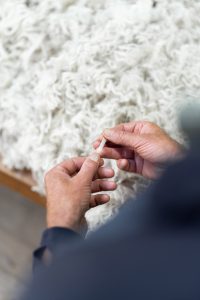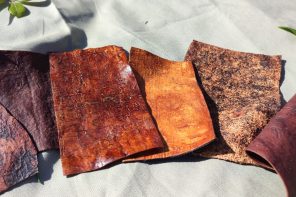New Zealand based apparel brand, icebreaker, has released the fourth instalment of its annual Transparency Report with a major focus on its plastic-free initiative.
For more than 26 years, icebreaker has worked with what nature provides to create natural, high-performing outdoor clothing as an alternative to plastic-based synthetic apparel. In 2017, icebreaker launched its inaugural Transparency Report detailing what it means to be a truly sustainable business and in 2019, the brand announced its boldest ambition to date: to become plastic-free.

A major highlight in this year’s Transparency Report reveals that in 2021, 91 percent of icebreaker’s total fibre composition is now merino or plant-based, with 65 percent more styles (vs 2020) being made with 100 percent merino or plant-based fibres. In 2021 alone, icebreaker forecasts to sell over 1.3 million units of 100 percent merino or plant-based apparel.
With the average New Zealander buying 60 percent more items of clothing than they did 15 years ago and keeping them for half as long, and fast fashion companies doubling and even tripling production, the amount of plastics and synthetic materials in the apparel industry alone has multiplied drastically. Fragments from textiles and apparel can be a significant contributor to environmental pollution. According to a report by the International Union for Conservation of Nature, plastic particles washed off from products such as synthetic clothes and textiles contribute to 35 percent of primary microplastics polluting our oceans.

“Like many consumers around the world, we found ourselves facing the creep of plastic into our lives and our product line. So, in 2019 we made a bold commitment,” said Jan Van Mossevelde, Brand President.
“By 2023, our aim is for all our clothing to be made from merino wool or plant-based fibres. For the very small amount of petrochemical synthetics that cannot be removed, we’re working on alternatives, including using bio-based fibres for now.”
icebreaker’s commitment to becoming plastic-free is especially vital now more than ever as a result of COVID-19. The pandemic not only disrupted everyday life as we know it, but has skyrocketed the use of single-use plastic consumption as more consumers shopped online, purchased disposable protective gear, and opted for bagged or wrapped produce and other grocery items.
As icebreaker doubles down on the final 9 percent of plastics in its clothing, it faces some specific challenges. The synthetic fibres that remain in the range, and which are still derived from petrochemicals include elastane in underwear for stretch, nylon in socks for strength, and polyester in jackets for lightweight strength. icebreaker will continue to lead the journey to move to natural in its relentless pursuit of better and is collaborating with lead yarn producers and bio-feedstock suppliers to find natural solutions to replace traditional nylon and elastane. All of the labels are also being replaced to be made from 100 percent natural fibres by August 2022.






